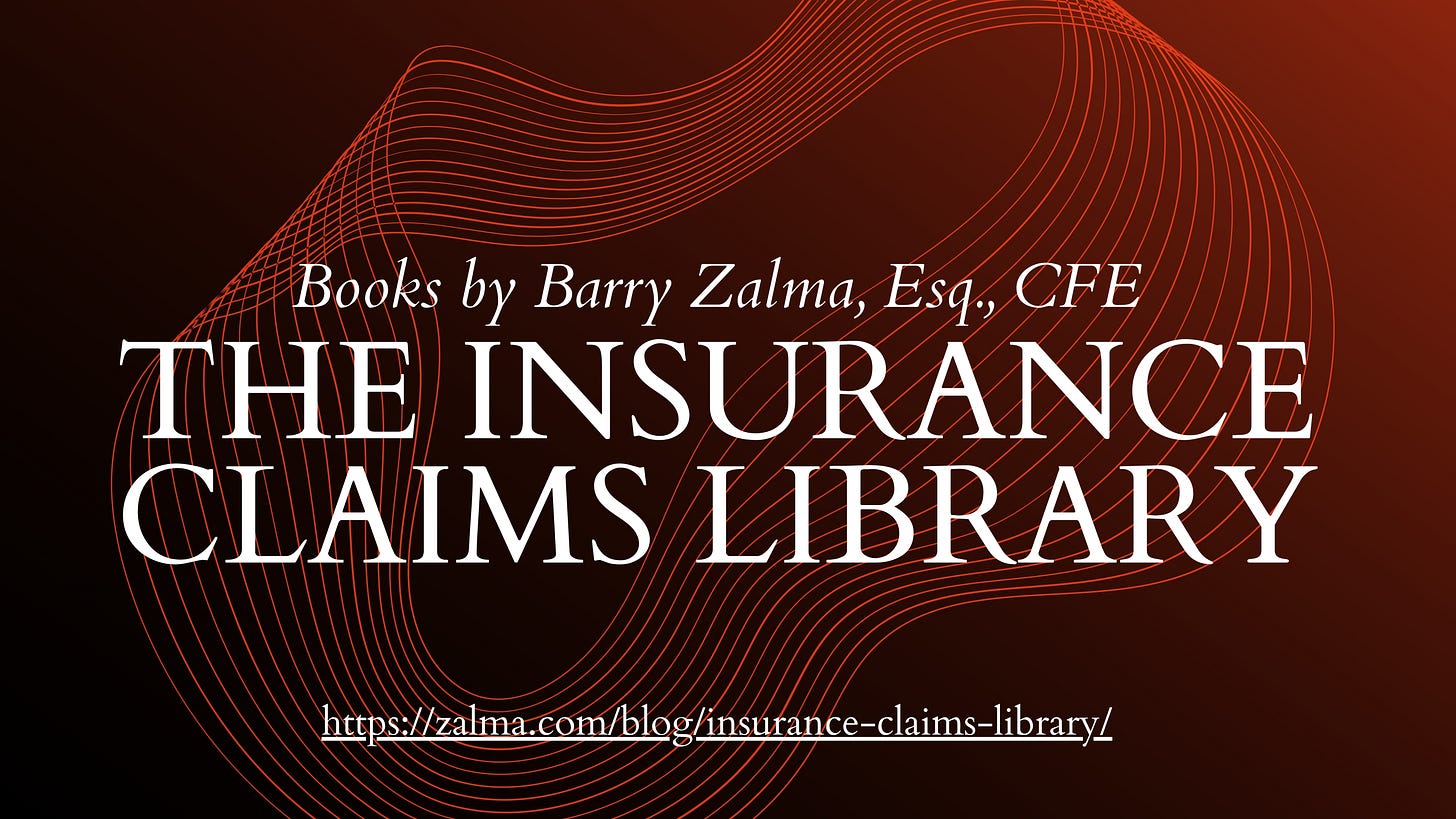Read the full article at https://lnkd.in/guftm8ek and see the full video at https://lnkd.in/gABZ3qRf and at https://lnkd.in/ga8ds-VH and at https://zalma.com/blog plus more than 4650 posts.
Mark Scafella appealed the order granting Erie Insurance Company (“Erie”) and Stanley Geho’s summary judgment in the underlying declaratory judgment action. In Mark Scafella v. Erie Insurance Company and Stanley Geho, No. 22-ICA-173, West Virginia Intermediate Court of Appeals (November 14, 2023) the West Virginia Court of Appeals resolved the dispute by reading the full policy.
FACTUAL BACKGROUND
The insurance claims Scafella made following that fire loss did not provide the result he desired and litigation followed.
THE POLICY
The property was insured under a homeowner’s policy of insurance issued by Erie (“policy”).
The the policy contained a standard business pursuits exclusion, which excluded loss to property “1. used in whole or in part for “business” purposes …; or 2. used to store “business” property.”
It was undisputed that Mr. Scafella chose the insurance quote that did not include the incidental farming endorsement, a less costly option. It is further undisputed that Mr. Scafella averred that he did not conduct “any business or occupational pursuits at the premises.”
Mr. Scafella began operating a business out of the milk house contrary to the statements on the application and that Olivia’s, LLC (“Olivia’s”), was a retail store selling meat, cheese, and sandwiches.
THE CLAIMS
The Court of Appeals concluded that the large barn area where the fire occurred and the milk house (where Mr. Scafella operated Olivia’s) are the same structure. In fact, when providing a recorded statement to Erie after the fire loss, Ms. Smith identified the barn and the milk house as being part of one building.
ZALMA OPINION
When a person is given a choice of available coverages and chooses the one less expensive he or she is gambling that future losses will fit within the lesser coverages. If, in addition the prospective insured misrepresents the facts at the site of loss to obtain the less expensive coverage the insured is committing fraud. After the loss Scafella attempted to change the policy he purchased into the policy he refused to pay for, with multiple legal machinations that the courts of West Virginia refused to honor. The moral: always tell the truth to your prospective insurer and never buy a policy that does not provide coverage for the risks the property faces.
(c) 2023 Barry Zalma & ClaimSchool, Inc.
Please tell your friends and colleagues about this blog and the videos and let them subscribe to the blog and the videos.
Go to Barry Zalma videos at Rumble.com at https://lnkd.in/gV9QJYH; Subscribe to substack at https://lnkd.in/gcZKhG6g; Go to Newsbreak.com https://lnkd.in/g8azKc34; Go to the Insurance Claims Library – https://lnkd.in/gwEYkxD.
Please tell your friends and colleagues about this blog and the videos and let them subscribe to the blog and the videos.
Go to Barry Zalma videos at Rumble.com at https://lnkd.in/gV9QJYH; Subscribe to substack at https://lnkd.in/gcZKhG6g; Go to Newsbreak.com https://lnkd.in/g8azKc34; Go to the Insurance Claims Library – https://lnkd.in/gwEYkxD.










Share this post